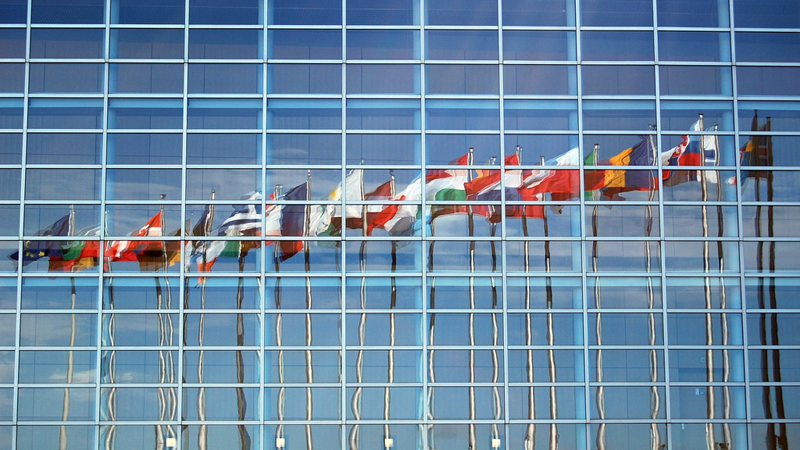“As I sit here today, I believe the flow of foreign direct investment has all but dried up while international businesses wait to see how this is resolved.”
The words of UK foreign secretary Philip Hammond on Sunday, two days after the UK voted to quit the European Union.
Since then all hell has broken loose.
The prime minister says he will leave in October, the UK’s European Commissioner says he will leave now. The leader of the opposition says he won’t leave but most of his colleagues say he will.
As the realities of the UK’s new relationship with Brussels sink in across he country, those leading the ‘Leave’ campaign are fast backtracking on campaign pledges to boost NHS funding and slow immigration levels.
“Our promises were a series of possibilities,” said Iain Duncan Smith, a former cabinet minister and veteran Eurosceptic.
This week David Cameron will travel to Brussels for a European Council session, where he’ll try and explain what happens next and when talks on leaving will start.
Although let’s be clear, everyone’s blagging it for now – this has never happened before.
Climate, energy impacts
The UK energy department is putting a brave face on this… a spokesperson told Climate Home:
“There will be no immediate changes and the Government will continue working to deliver its agenda. DECC is committed to making sure consumers have secure, affordable and clean energy now and in the future.”
The European Commission’s climate team declined to comment, pointing us to a terse statement from Jean Claude Juncker on Friday.
Whatever. Here are six questions the UK and EU will need to answer moving forward:
-What’s the short term climate outlook?
-Will it hurt the Paris climate agreement?
-Is EU climate ambition over for good?
-Are climate sceptics coming back to power?
-How will this affect UK energy security?
-Could it impact climate finance flows?
Elsewhere, lawyers at Norton Rose Fulbright argue the UK will continue to play an integral role in Europe’s climate and energy union – but without having any say on what happens.
Increasing interconnectivity with continental Europe will necessarily require co-operation with the EU internal energy market in any Brexit scenario. Because the UK Government has been at the forefront of efforts to liberalise and develop cross-border energy markets, we envisage that this cross-border policy direction is likely to endure.
And…
Brexit, in whatever form, is unlikely to change the UK’s climate change goals; these are established at a national level under the Climate Change Act 1998. But, there will nevertheless be important issues to settle. For example, at an international level the UK’s emissions reduction commitment would need to be disentangled from the EU target under the United Nations Framework Convention on Climate Change (UNFCCC) and the recent Paris agreement. The UK would also need to submit its own Nationally Determined Contribution in respect of its intended climate actions under the UNFCCC processes.
Shakin’ it up
Jonathan Gaventa at London-based think tank E3G says the “fundamentals” of decarbonisation remain unchanged: it’s an economic and scientific necessity.
“The UK and EU will have strong drivers to maintain investment and jobs despite the economic uncertainty created by the referendum. Core economic drivers for creating a modern clean energy and transport system have strengthened rather than weakened,” he writes.
First big test
…comes this week when the government is scheduled to sign off its carbon reduction targets for 2030. Note they’re far higher than the EU’s 2030 goal of 40% cuts, suggesting the UK departure will mean other countries in the bloc need to up their game as a result.
Brexit and climate summit
With impeccable timing there’s a huge gathering of leaders from business, government and UN agencies in London this week, where the impacts of Brexit on global low carbon efforts will be high on the agenda. Speakers include Christiana Figueres, UNFCCC Executive Secretary; Patrick Pouyanné, Chairman & CEO, Total; Michel Madelain, Vice Chairman, Moody’s Investors Service; Rachel Kyte,CEO, SE4ALL; Roberto Azevêdo, World Trade Organization Director-General. For more details check out the event website.
G20 energy meeting
Climate change is one of 10 ‘goals’ China has identified as priorities for this year’s summit in Hangzhou – areas Beijing has targeted include speeding up ratification of the Paris climate deal, delivering clean energy to developing countries and ensuring green finance flows ate increased. Energy ministers will meet from Wednesday to Thursday as they build up to the summit.
Green Climate Fund
The board gather Tuesday and Wednesday. Priorities include getting more countries to submit projects and appointing a new boss. Here’s a note from the co-chairs outlining expectations plus our 8 questions for the board.
Australia decides
…on July 4. There are rumours circulating incumbent PM Malcolm Turnbull has a climate plan up his sleeve, but if so it’s a well-hidden secret say his critics.
Letter to @TurnbullMalcolm from 2k+ coral scientists asks for end to backing of coal exports and no more coal mines pic.twitter.com/4Cx6p2obWj
— Graham Readfearn (@readfearn) June 26, 2016
